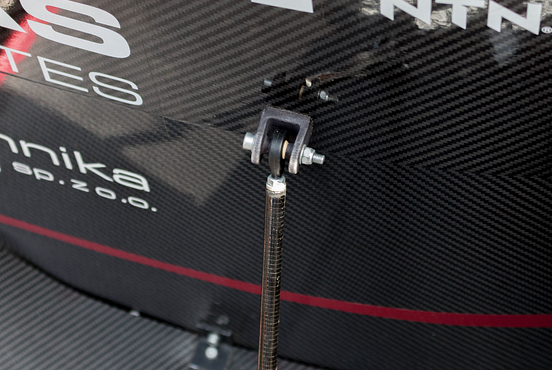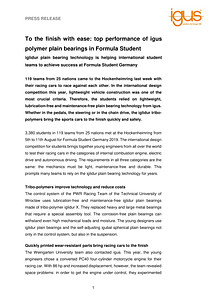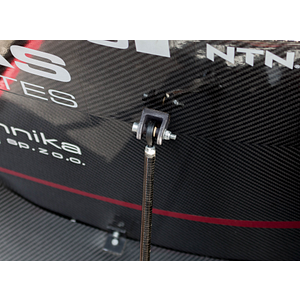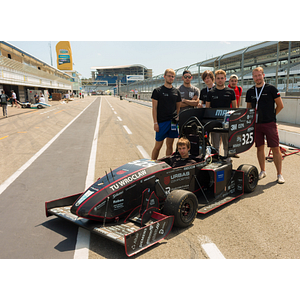To the finish with ease: top performance of igus polymer plain bearings in Formula Student
August 13, 2019
iglidur plain bearing technology is helping international student teams to achieve success at Formula Student Germany

119 teams from 25 nations came to the Hockenheimring last week with their racing cars to race against each other. In the international design competition this year, lightweight vehicle construction was one of the most crucial criteria. Therefore, the students relied on lightweight, lubrication-free and maintenance-free plain bearing technology from igus. Whether in the pedals, the steering or in the chain drive, the iglidur tribo-polymers bring the sports cars to the finish quickly and safely.
3,380 students in 119 teams from 25 nations met at the Hockenheimring from 5th to 11th August for Formula Student Germany 2019. The international design competition for students brings together young engineers from all over the world to test their racing cars in the categories of internal combustion engine, electric drive and autonomous driving. The requirements in all three categories are the same: the mechanics must be light, maintenance-free and durable. This prompts many teams to rely on the iglidur plain bearing technology for years.
Tribo-polymers improve technology and reduce costs
The control system of the PWR Racing Team of the Technical University of Wroclaw uses lubrication-free and maintenance-free iglidur plain bearings made of tribo-polymer iglidur X. They replaced heavy and large metal bearings that require a special assembly tool. The corrosion-free plain bearings can withstand even high mechanical loads and moisture. The young designers use iglidur plain bearings and the self-adjusting igubal spherical plain bearings not only in the control system, but also in the suspension.
Quickly printed wear-resistant parts bring racing cars to the finish
The Weingarten University team also contacted igus. This year, the young engineers chose a converted PC40 four-cylinder motorcycle engine for their racing car. With 86 hp and increased displacement, however, the team revealed space problems: in order to get the engine under control, they experimented with special components such as plastic pinions as chain tensioners in the chain drive. This was followed by the problem of long delivery times of the parts. When looking for a suitable solution, the engineers finally found what they were looking for at igus: cost-effective, low-wear pinion gears from the laser sintering printer. After a simple configuration, the pinions were printed and provided, made from the high-performance polymer iglidur I6 in less than 72 hours.
Small installation space requires compact solutions
The Karlsruhe Institute of Technology team was also looking for a compact solution for their pedal box, so they turned to igus. “Since the pedal box has to be built in an extremely small space, but the components twist against each other, we needed a space-saving solution,” explains Hannah Decker, from the chassis area of the KA Racing Team. “We were able to achieve this through the iglidur plain bearings.” But the bearings are not only found in the pedal box, but also in the mounting of the brake pedal and the accelerator pedal, and the wear-resistant bearings are used in the sensor connection of the brake pedal.
The young engineers support from igus promotes innovative projects
In addition to these three teams, igus’ young engineers support (yes) sponsors numerous Formula Student teams worldwide. With its university initiative, igus wants to support pupils, students and lecturers with free samples, sponsorships and the development of innovative projects. For more information about igus’ university support, visit http://www.igus.eu/yes




